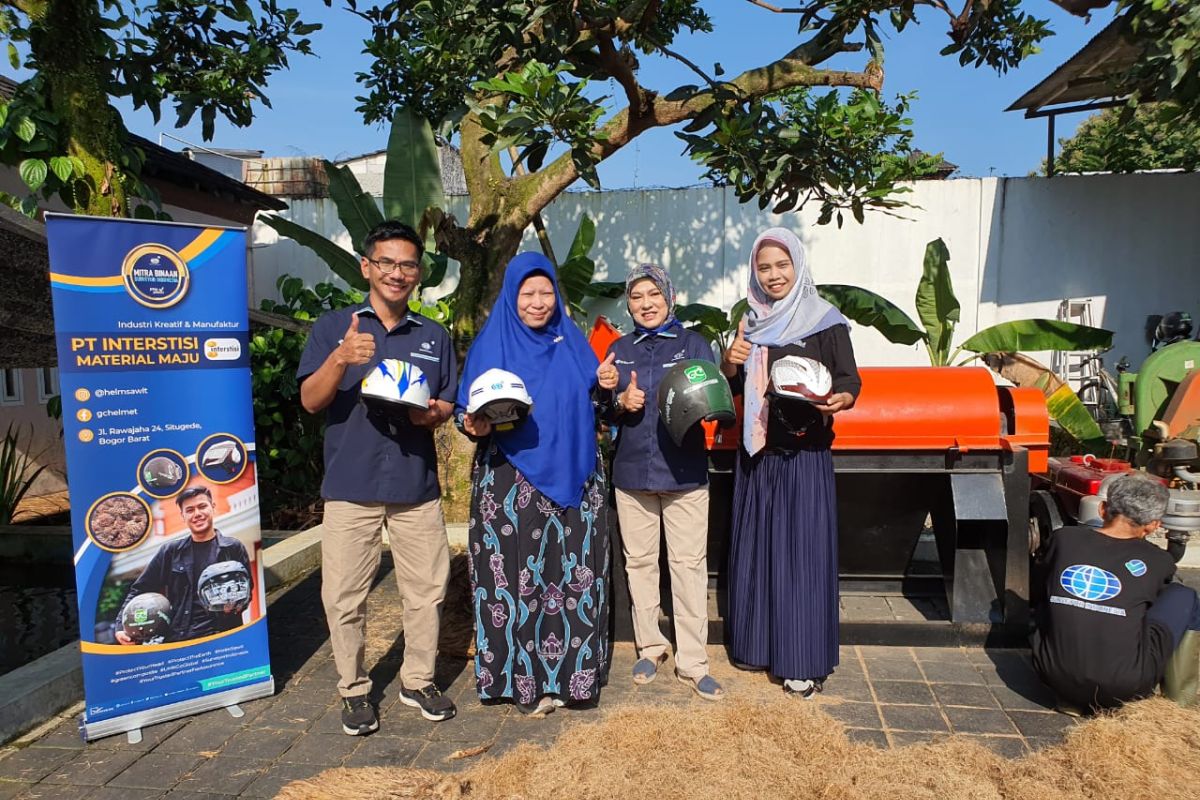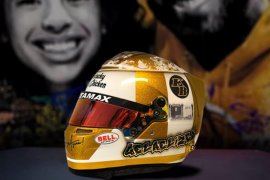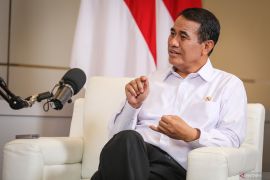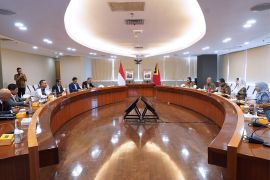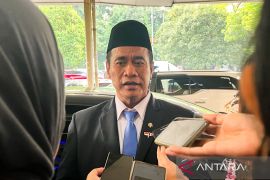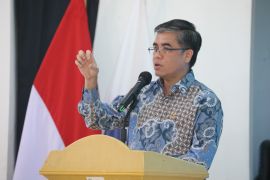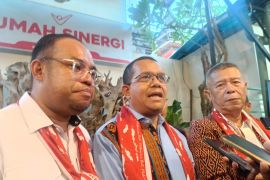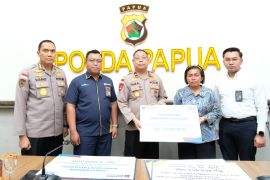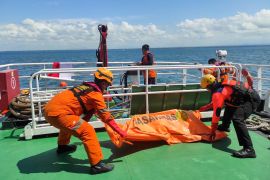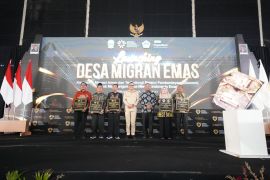The empty palm fruit bunch fiber has good mechanism and can be used as a filler to improve the physical and mechanical quality of helmets for projectsJakarta (ANTARA) - An expert from Bogor Agricultural Institute (IPB), Siti Nikmatin, partnered with PT Intertisi Material Maju (PT IMM), which was coached by Surveyor Indonesia, to make helmets using empty palm fruit bunches.
“The innovation of empty palm oil bunch fibers as raw material for helm (helmets) has been patented as number P00201609159,” Nikmatin informed in a written statement received here, Wednesday.
The helmets have been tested and approved for compliance with national standards and have a domestic component rate of 71.21 percent. They are being sold under the Green Composite Helmet trademark.
Nikmatin said that fibers from empty palm fruit bunches have been mainly used in fertilizers so far. However, there has not been much diversification in terms of their use. Therefore, she made the innovative helmet, which uses fibers from empty palm fruit bunches as raw material.
"The empty palm fruit bunch fiber has good mechanism and can be used as a filler to improve the physical and mechanical quality of helmets for projects," she informed.
Indonesia is the largest producer of palm oil globally. According to the United States Department of Agriculture (USDA), crude palm oil production in Indonesia could reach 45.5 million metric tons (MT) in 2022–2023.
The large-scale production of CPO translates into large quantities of empty palm fruit bunches. Each ton of processed fresh fruit bunches produces 220–230 kg of empty bunches. Thus, a solution is required to address the huge quantity of byproducts.
CEO of PT IMM Andika Kristinawati said that PT Surveyor Indonesia assisted in the domestic component certification process for the helmets. Surveyor Indonesia also helped with funding the purchase of the required technology, marketplace registration, training on branding, and exhibition.
PT IMM is working with PT Perkebunan Nusantara (PTPN) VIII in Jasinga, Bogor District, to supply the raw materials.
"The processing of empty palm fruit bunches is being pursued with agricultural groups in Jasinga," Kristinawati said.
In the beginning, groups are trained in processing empty palm fruit bunches so that they can turn them into fiber for the helmets.
The groups separate the bunches into long fibers. The process usually takes one to two weeks.
Afterward, the fiber is mixed with polymer plastic and turned into small granules. The granules are then molded into the helmet shell.
The shell is then painted and reinforced with other elements before the helmet is marketed.
"This helm is bio composite, not just polymer. (It) Has natural fiber as reinforcement, and we also contribute to reducing the waste of empty palm fruit bunch. The test also shows that it does better in absorbing impact," she elaborated.
From 2017 till date, the brand has been marketed across Indonesia at a price ranging from Rp70 thousand to Rp350 thousand. During the COVID-19 pandemic, 5 thousand of helmets were ordered by bikers.
Related news: West Kalimantan, palm oil companies cooperate to build roads
Related news: Minister to accelerate replanting of smallholder oil palm plantations
Related news: Palm oil industry will remain crucial national economic backbone: VP
Translator: Martha Herlinawati S, Mecca Yumna
Editor: Sri Haryati
Copyright © ANTARA 2023
